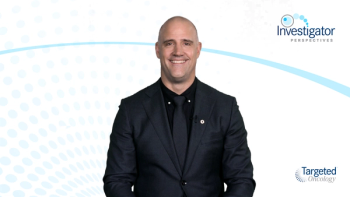
Getting to Know Colorectal Cancer
John Marshall, MD, provides an overview of the colorectal cancer landscape.
Episodes in this series
John Marshall, MD: Everybody [in the field] knows that colorectal cancer is 1 of our common malignancies, with about 150,000 new cases every year in the United States and more than a million worldwide. There has been a shift in younger and younger people getting colorectal cancer, therefore there is a shift in screening to 45, even though a lot of our patients are 20 and 30 years old. That used to never be true. There are now large patient populations at risk, both men and women. We don’t really understand why certain people get it and why certain people do not. There is a list of criteria regarding family history, Lynch syndrome, and things like that, but most of my patients don’t fit any of those things. They’re physically fit, they’re the right weight, they haven’t done anything wrong, they eat right—yet they still get colorectal cancer.
There is a lot to learn about risk factors for the disease. As you might guess, when that’s the case, it is so important for people to get screened. Of course the screening for this is a colonoscopy, fecal occult blood testing, and there is the new Cologuard test. Anything is better than nothing. The pandemic has pushed a lot of people to delay their routine screening. Those who are already on good behavior, if you will, or who are getting screened, took a year off, and we are feeling that in the clinic with more cancers and more later-stage cancers being identified. We know that it is critical.
For a new patient who receives a diagnosis, we sort them into earlier stage nonmetastatic and metastatic, and there are different biomarkers that are important that you need to have. We must be aware of these when treating those 2 groups. In the first group, the stage II and stage III patients, you must know about microsatellite stability [MSS] or microsatellite instability [MSI], because that is beginning to affect our treatment choices. There is also downstream screening for Lynch syndrome, so somatic testing leading to germline testing. You have to know that.
In the metastatic disease setting, you must know patients’ MSI status because we have new frontline indications for pembrolizumab in that patient space, but you must also know all RAS status, HER2 [human epidermal growth factor receptor 2], and you need to know BRAF as critical. You should also know where it comes from—if it’s right-sided vs left-sided—and you use those criteria to help pick initial and subsequent lines of therapy. That molecular testing is often done on the biopsy that was done. Particularly in metastatic disease, we often are no longer doing liver biopsies to prove metastases. It always comes up, "Well, are all the cancer sites molecularly the same?” The answer to that question is most likely yes, but we are seeing evolution in profiles, so profiles can change over time, but the testing has also changed over time.
For example, I had a recent patient whose molecular profile was done about 3 years ago, [which was] well before we were doing some of the more up-to-date testing. You need to not only track the patients’ tumor status, but tests have evolved as well. That is a big-picture overview of the world of colorectal cancer here in the United States, including a real focus on molecular testing.
This transcript has been edited for clarity.










































